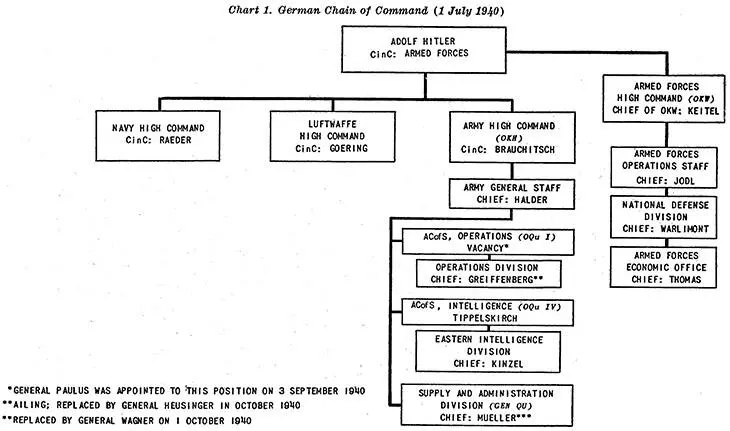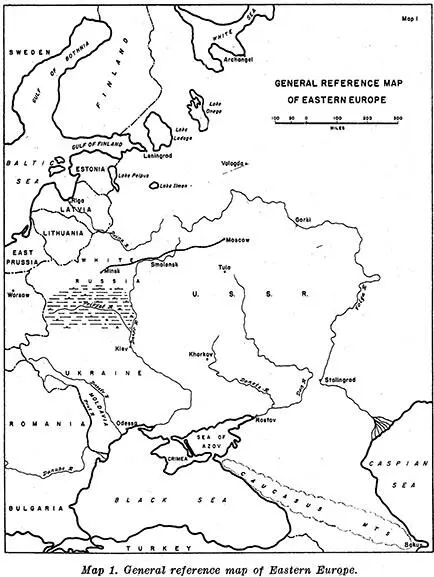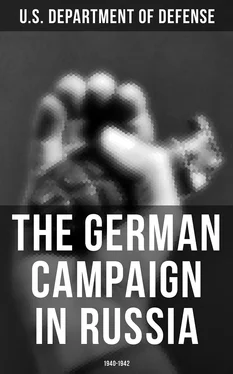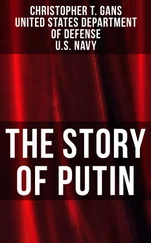Chapter 11 The Period of Stagnation (August-October 1942)
Developments to Mid-August 1942
Personnel and Other Problems (16-18 August 1942)
The Situation in the Caucasus (Second Half of August 1942)
The Opening of the Battle for Stalingrad (End of August 1942)
The German Leadership Crisis (September 1942)
Faulty Intelligence and its Interpretation
The German Offensive Grinds to a Halt (26 September 1942)
German Estimates in October and Early November 1942
Army Group A
Army Group B
The Estimate of 6 November
The Oil of the Caucasus
German Efforts at Production
Russian Supplies
Local Engagements (October-Mid-November 1942)
Chapter 12 Critical Analysis of the German Summer Offensive in 1942
Different Concepts of Strategy
Differences over the Choice of Objective
Mistakes in the Execution of the German Offensive
Appendixes
Appendix A List of German Military Leaders July 1940 - November 1942)
Appendix B Chronology of Events
Table of Contents
Clausewitz observed of Russia that "it was a country which could be subdued only by its own weakness and by the effects of internal dissension. In order to strike these vulnerable spots of its body politic, Russia would have to be agitated at the very center." In reading this study, the military student will realize how dearly the Germans had to pay for ignoring Clausewitz's advice.
The purpose of this study is to describe German planning and operations in the first part of the campaign against Russia. The narrative starts with Hitler's initial plans for an invasion of Russia and ends at the time of Germany's maximum territorial gains during the battle for Stalingrad. A subsequent volume will depict the course of events from the Russian counteroffensive in November 1942 to the capture of Berlin in April 1945.
The material for this study was obtained from German military records now in the custody of The Adjutant General, Department of the Army. Monographs by former German general officers who had an active part in the planning and operations provided additional information. The authors of these monographs, prepared for the Historical Division, United States Army, Europe, include Generaloberst (Gen.) Franz Halder, Chief of Staff of the German Army from 1938-42; Generaloberst Gotthard Heinrici, a former corps, army, and army group commander on the Russian front: and several others.
The study was written by Mr. George E. Blau of the Special Studies Division, Office of the Chief of Military History. In his presentation, the author made every effort to give an objective account of Germany's initial efforts to conquer Soviet Russia in World War II.
Table of Contents
Chapter 1
Strategic Planning
Table of Contents
Initial Discussions
(July 1940)
Table of Contents
After the conclusion of the French campaign in June 1940 Hitler devoted his attention to initiating plans for the seaborne invasion of England-Operation SEELOEWE. On 16 July he issued the directive for the operation. Three days later, in a speech before the Reichstag, Hitler made peace overtures to Great Britain. When they did not produce the expected reaction in Britain, he could only conclude that his last remaining enemy was continuing the war hoping for a change in the U.S. attitude and for future assistance from the Soviet Union.
On 21 July, after discussing the invasion of England with his military advisers, Hitler asked Field Marshal Walter von Brauchitsch, the Commander in Chief of the Army, to study the Russian problem and submit plans for a campaign against the Soviet Union. In regard to the latter the following was mentioned:
1. The concentration of attack forces would take 4 to 6 weeks.
2. The military objective would be to defeat the Russian Army or at least to seize so much Russian territory that the armaments plants in eastern Germany, particularly those in Berlin and Upper Silesia, and the Romanian oil fields would be beyond the range of Russian air attacks. At the same time the German ground forces would have to advance far enough to bring important production centers of European Russia within striking distance of the Luftwaffe.
3. The political aims would include the creation of an independent Ukraine and a confederation of Baltic States under German domination.
4. The Army would need approximately 80-100 combat divisions; the Soviet Union had some 50-75 good Russian divisions in Europe. If the campaign against Russia was launched that autumn, some of the German air power committed against Britain would have to be transferred to the East.


The following day, Brauchitsch informed Generaloberst (Gen.) Franz Halder, Chief, Army General Staff, of the discussions that had taken place at the previous day's conference and asked him to study the various problems involved in an operation against Russia. Halder thereupon requested Lt. Col. Eberhardt Kinzel, Chief, Eastern Intelligence Division, to brief him on Russian troop dispositions and asked Col. Hans von Greiffenberg, Chief, Operations Division, to assign a special assistant to the preparation of a tentative plan for a campaign against the Soviet Union. [See chart 1. ]
On the basis of data provided by Kinzel on 26 July, Halder concluded that an attack launched from assembly areas in East Prussia and northern Poland toward Moscow would offer the best chances for success. After the seizure of Moscow the Russian forces defending the Ukraine and the Black Sea coast would be compelled to fight a series of battles with reversed front. [See map 1 .]
The first draft of the Operations Division plan placed the main effort south of the Pripyat Marshes. The plan also called for 100 divisions. Halder, however, preferred to place the main effort north of the Pripyat.
Two days later, 29 July, Generalmajor (Brig. Gen.) Erich Marcks was temporarily assigned to Army High Command headquarters to draw up a campaign plan against the Soviet Union. General Marcks was chief of staff of the Eighteenth Army, which had recently been assigned to the Russian border and was preparing plans for defense against a possible Russian attack.
The same day General der Artillerie (Lt. Gen.) Alfred Jodl, Chief, Armed Forces Operations Staff, informed Col. Walter Warlimont, Chief, National Defense Division, and a group of officers working on his staff that Hitler had made up his mind to start a preventive war against Russia. The Army and Luftwaffe were to employ all available forces to eliminate forever the Bolshevist danger in the East. Since an eventual conflict between the National Socialist and Communist ideologies was inevitable, the Fuehrer preferred to extend the war into eastern Europe right then to being forced to resume hostilities after a few years of intermittent peace. Originally, Hitler had intended to invade Russia in the autumn of 1940, but Field Marshal Wilhelm Keitel had pointed out the difficulties of a winter campaign in Russia and had presented convincing evidence that the existing road and rail net in the newly acquired Polish territories would not be capable of supporting the assembly of strong German forces. Hitler had thereupon postponed the campaign, setting the tentative invasion date for mid-May 1941.
Читать дальше














